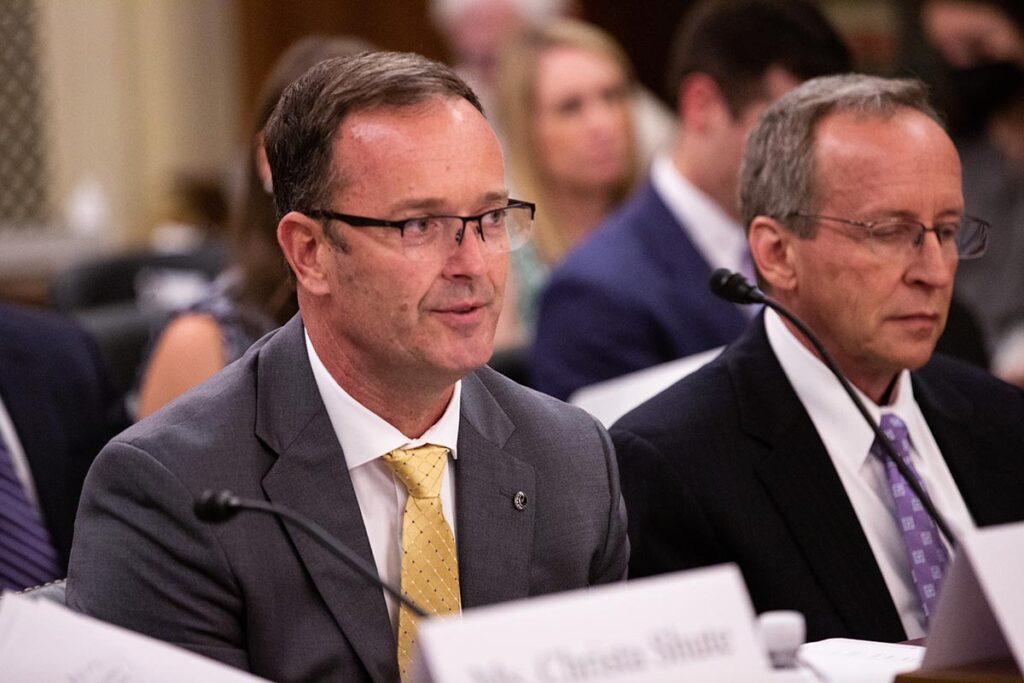
Affordable, reliable broadband service is critical for the economic growth of rural communities throughout the nation, an Illinois electric cooperative leader told a Senate panel Wednesday.
“Robust internet access allows students to get the educational resources they need, improves access to medical care in rural communities, and enables farmers to better leverage new technologies to improve crop yields,” Jesse Shekleton, director of broadband operations at Jo-Carroll Energy, told the Senate Agriculture, Nutrition and Forestry Subcommittee on Rural Development and Energy at a hearing on rural broadband.
“This connectivity is critical to fully participate in today’s internet-based economy, and many families and businesses will choose to locate elsewhere if robust internet access is unavailable in rural areas.”
As Congress considers a new five-year Farm Bill, lawmakers “should prioritize scalable, future-proof networks in any future rounds of federal funding for broadband,” Shekleton said.
“Consumer demands and needs for increased internet speeds continue to grow and are trending toward a need for multi-gigabit service by 2030,” he said.
Shekleton also urged Congress to create flexible rules for rural broadband programs. He said Jo-Carroll Energy and other electric co-ops that provide high-speed internet service are often trying to tap into several federal and state funding programs at once to help them deploy broadband.
“Areas currently unserved by broadband are expensive, and Congress should provide the flexibility to leverage multiple programs to offset some of the high costs of deployment so that providers are able to best meet the needs of those rural and remote areas,” he said.
Jo-Carroll Energy, which is based in Elizabeth and serves about 20,000 consumer-members, launched a broadband arm, Sand Prairie Internet, in 2008. It initially offered a fixed wireless system but has since pivoted to a fiber-only network that is much more reliable, Shekleton said.
“Fiber allows JCE to bring rural economic development and prosperity to our communities and enable robust opportunities for education, health care, and agriculture in northwestern Illinois,” he said.
The fiber broadband connection has helped support recently opened businesses, including a local pharmacy and a convenience store that is the only place for residents of the small community to buy groceries.
“It also is a draw for younger families, especially as many have transitioned to hybrid work or are considering the educational needs of their children,” Shekleton said.
More than 80 years after electric co-ops partnered with the U.S. Department of Agriculture to bring electricity to rural America, co-ops are partnering with the agency again “to bring vital broadband service to those same areas,” he said.
“As the committee considers the upcoming Farm Bill, JCE and the rest of our nation’s electric cooperatives look forward to working with you in our shared goal of connecting all Americans, no matter where they live, with a robust and reliable internet connection.”
Erin Kelly is a staff writer for NRECA.